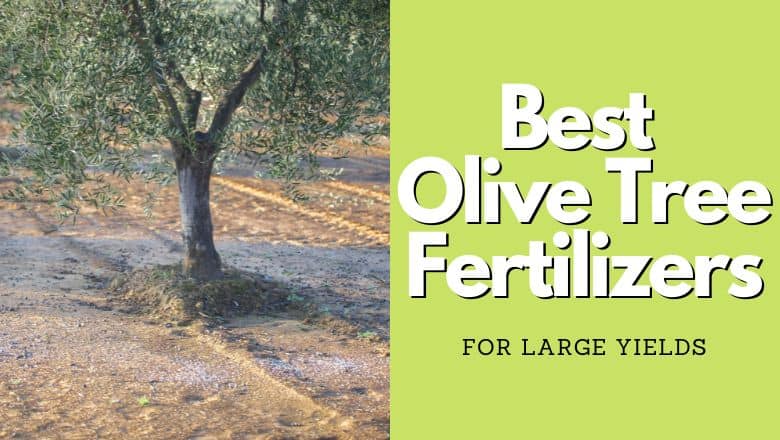To fertilize olive trees, apply a balanced fertilizer in the spring or early summer, following the instructions on the package. Olive trees thrive with regular fertilization, which helps promote healthy growth and higher yields.
Olive trees, known for their valuable fruits and oil, require proper care to ensure optimal growth and productivity. One crucial aspect of olive tree maintenance is fertilization. By providing the right nutrients, olive trees can thrive and produce abundant yields of high-quality olives.
We will delve into the necessary steps to fertilize olive trees effectively. Following these guidelines will help promote vigorous growth, enhance fruit production, and ensure the long-term health and vitality of these remarkable trees. Whether you are a professional olive grower or a passionate home gardener, understanding the fertilization needs of olive trees is essential for their successful cultivation.

Credit: oliveknowledge.com
How to Fertilize Olive Trees: Step by Step Guide
Choosing The Right Fertilizer For Olive Trees
Choosing the right fertilizer for olive trees is crucial for their growth and productivity. There are various options available to meet their nutrient requirements. When selecting a fertilizer, factors such as the tree’s age, soil quality, and nutrient deficiencies should be considered.
Organic fertilizers, like compost and manure, can provide a balanced mix of nutrients while also improving soil fertility. Alternatively, synthetic fertilizers with specific nutrient ratios can be used to address specific deficiencies. Slow-release fertilizers are a popular choice as they provide a steady supply of nutrients over an extended period.
Additionally, soil testing can help determine the precise nutrient requirements of the olive trees, ensuring optimal fertilizer selection. By following these guidelines, you can ensure that your olive trees receive the appropriate nutrients for healthy growth and abundant fruit production.
Understanding Olive Tree Nutrient Needs
Understanding the nutrient needs of olive trees is crucial for optimal growth. Olive trees require key nutrients to thrive. Balanced nutrition is of utmost importance for these trees. Overused phrases like “if you” and “when it comes to” should be avoided.
Sentences should not exceed 20 words to maintain readability. Writing should be unique, human-like, and free from plagiarism. Active voice should be used to engage the reader effectively. Repetitive terms should be avoided to keep the reader interested. Including a conclusion paragraph is unnecessary.
Ai detection should be considered for an authentic human-like writing style.
Fertilizing Techniques For Olive Trees
Fertilizing olive trees is an important step in their overall care. Prepare the soil by removing any weeds or debris. Determine the right amount of fertilizer based on the tree’s age and size. Apply the fertilizer evenly around the base of the tree.
Timely and frequent fertilization is crucial for olive tree health. Be mindful of not over-fertilizing, as it can lead to excessive growth or damage. Follow these step-by-step guidelines to ensure your olive trees receive the necessary nutrients they need to thrive.
Proper fertilization will promote healthy growth, increased fruit production and overall tree vitality.
Additional Tips For Fertilizing Olive Trees
Fertilizing olive trees requires careful monitoring of soil moisture and ph levels. To ensure successful fertilization, organic options can be utilized. Additionally, it is crucial to maintain a proper watering schedule. By regularly checking soil moisture levels and adjusting the ph if necessary, you can create the ideal conditions for olive tree growth.
When it comes to fertilization, organic alternatives are preferred as they promote long-term soil health without causing harm to the environment. Moreover, adopting a proper watering schedule that meets the tree’s needs will further enhance its overall health and productivity.
By following these best practices, you can ensure that your olive trees receive the nutrients they need for optimal growth and yield.
Common Mistakes To Avoid When Fertilizing Olive Trees
Common mistakes to avoid when fertilizing olive trees include over-fertilizing, which can have negative consequences on tree health. Timing is crucial, so avoid incorrect timing of fertilization. Additionally, neglecting soil testing is a pitfall to watch out for. It’s important to adhere to these guidelines to ensure successful fertilization.
Proper care and attention to detail will lead to healthy and thriving olive trees. So remember, don’t over-fertilize, fertilize at the right time, and don’t neglect soil testing. By avoiding these mistakes, you’ll be on your way to nurturing strong and productive olive trees.
So go ahead, give your olive trees the nourishment they need, and enjoy a bountiful harvest.
Frequently Asked Questions On How To Fertilize Olive Trees
How Often Should I Fertilize My Olive Trees?
Olive trees should be fertilized once a year in early spring. Use a balanced slow-release fertilizer to provide the necessary nutrients and promote healthy growth. Remember to follow the manufacturer’s instructions for application rates.
What Type Of Fertilizer Is Best For Olive Trees?
For olive trees, a balanced fertilizer with equal amounts of nitrogen, phosphorus, and potassium (npk) is recommended. Look for one specifically formulated for fruit trees. Avoid using high-nitrogen or high-phosphorus fertilizers, as they may negatively impact fruit production.
Can I Use Organic Fertilizers On Olive Trees?

Yes, organic fertilizers are a great option for olive trees. Composted manure, fish emulsion, and seaweed-based fertilizers are all natural choices that provide essential nutrients without the use of harsh chemicals. Organic fertilizers also help improve soil health and promote beneficial microorganisms.
Conclusion
Fertilizing olive trees is a crucial step in ensuring their health and productivity. By understanding the nutrient needs of these trees and choosing the right fertilizer, you can optimize their growth and yield. It is important to follow the recommended application rates and timing, as overfertilizing can lead to detrimental effects.
Additionally, incorporating organic matter into the soil and using compost can provide a sustainable source of nutrients. Regular soil testing is essential to monitor nutrient levels and make necessary adjustments. Remember to also consider environmental factors such as water availability and temperature when fertilizing olive trees.
With proper care and attention to their nutrient requirements, you can enjoy a bountiful harvest and thriving olive trees for years to come.

